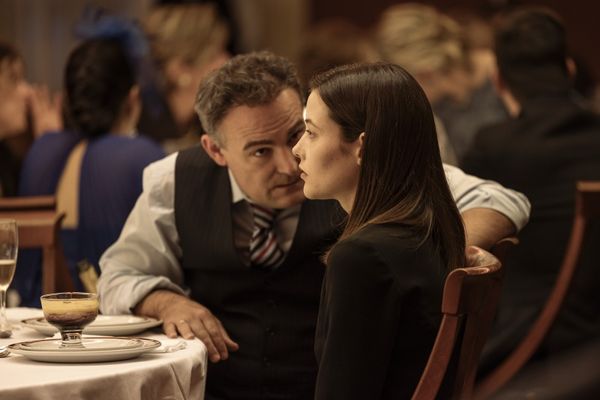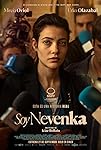Eye For Film >> Movies >> I Am Nevanka (2024) Film Review
I Am Nevanka
Reviewed by: Amber Wilkinson

The list of countries that have had “Me too” moments and subsequent movies about them continues to grow with the latest drama from Icíar Bollaín, which considers the case of Nevenka Fernández, who was harassed by a mayor and subsequently took him to court.
With elements that are sadly all too recognisable, the familiar story is elevated by the strength of the performances and the decent pace and no-nonsense approach adopted by Bollaín, who co-wrote the screenplay with Isa Campo.

Mireia Oriol plays Nevenka, who we meet towards the end of the story as she suffers a panic attack accompanied by the Nokia ringtone Dom Joly made famous and which becomes a nightmare refrain through the course of a film. As she unburdens herself to a lawyer - a framing device that is elegantly employed - we can immediately see one of the many ways that stories such as hers become suppressed, since she is given chapter and verse on how hard it will be to make her accusations stick.
It’s something that sticks in the mind as we flashback to some months before when the naïve Nevenka was persuaded to return from Madrid to her hometown of Ponferrada in the northwest of the country in order to take a job as a local councillor. Oriol captures the way that flattery can be a strong motivator, even as she dismisses the warnings from older women around her about the predatory reputation of her new boss, the mayor Ismael Álvarez (Urko Olazabal).
He seems friendly and keen to push her forward, but that push soon becomes sexual shove. Olazabal has the slipperiness of a well-oiled snake, knowing just which manipulative buttons to press to groom Nevanka into submission. Even as she initially gives in to his dubious charms, there’s a sense of her doing it because she has found herself in a game she doesn’t know how to play rather than any real attraction.
Soon that ringtone - and its plainer text message beep bedfellow - become a chorus that seems to continually punctuate her day. Her attempts to extract herself from the situation lead to more emotional manipulations and threats to her reputation that begin to escalate. While Bollaín and Oriol don’t shy away from melodrama, this only makes Olazabal’s reined in reign of terror seem all the more disturbing. One look from him is enough of a warning for the men on the council, while there’s also the insidious sense of some of the women thinking that Nevenka is only getting what she asked for.
While Bollaín doesn’t reach the same level of complexity here as she did with domestic abuse drama Take My Eyes, she nevertheless hits home her point about how women can both find themselves compromised and unable to extricate themselves. This isn’t just about the emotional abuse from Álvarez but her mother’s expectations and the personal fear from Nevenka that her personal reputation may be damaged beyond repair. As with Take My Eyes, Bollaín keeps actual scenes of direct abuse to a minimum, but refuses to do anything but look directly at it when she does put it on screen. Real life resolution also proves less conclusive than anything fiction might serve up - a reminder that the patriarchal phoenix is always ready to spring back, even when you think there’s nothing left but ashes.
Reviewed on: 21 Sep 2024
















